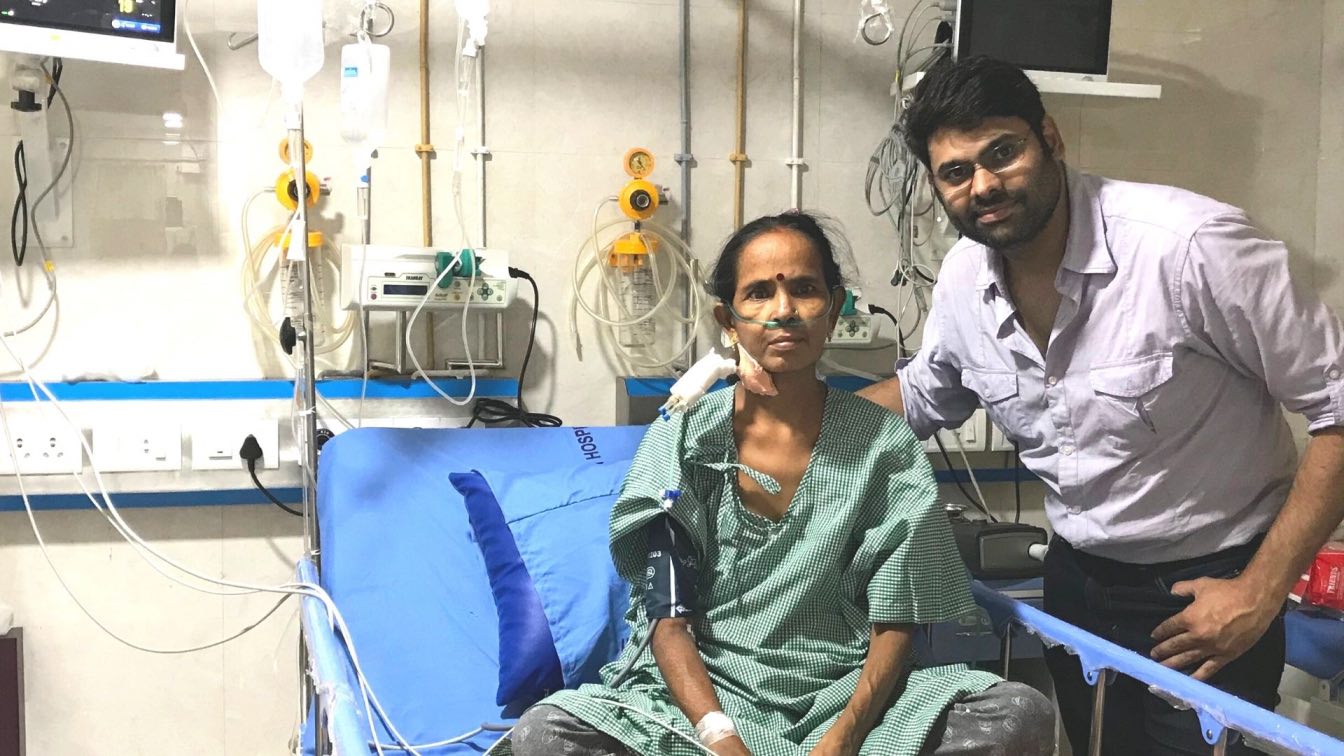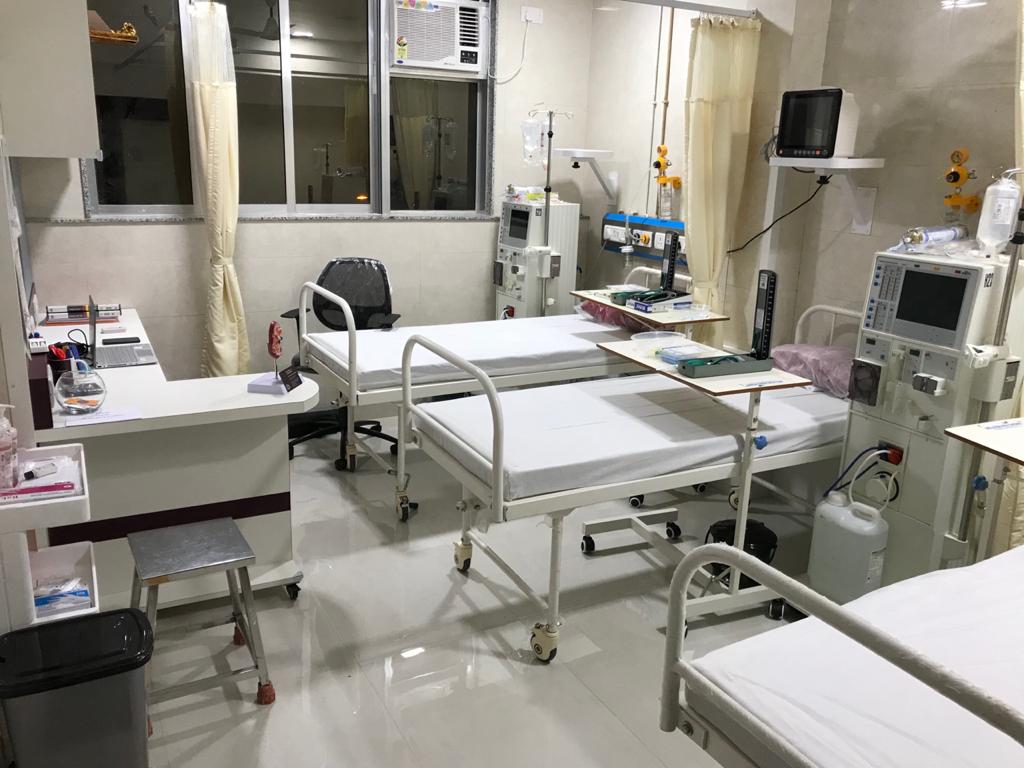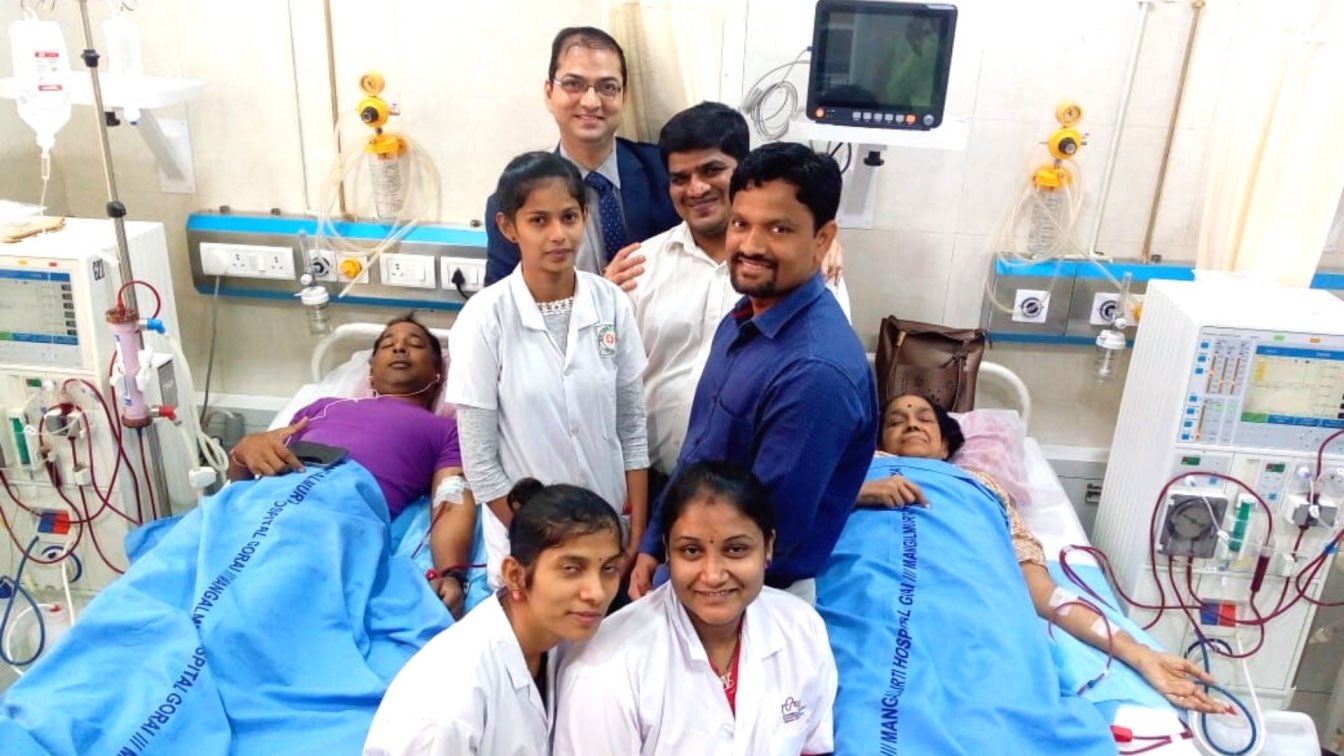Man Quits US Job; Now Provides Kidney Dialysis To Rural Patients For Half The Cost
Shashank Moddhia from Mumbai launched The Renal Project in 2019 to offer affordable treatment for patients of kidney disease in Tier II and Tier III cities

The COVID-19 pandemic lockdown forced many businesses and services to face sudden closures. This proved to be difficult, especially for people undergoing medical ailments. Ashwin Kadam from Gorai in Mumbai is one such patient, who was left stranded and could not access hemodialysis treatment for his chronic kidney disease.
Patients of this disease require kidney dialysis at least once a week, or more, depending on the health condition. But thanks to Mumbai-based startup The Renal Project, the 44-year-old could seek the required medical care, even amidst the pandemic, without experiencing gaps or hindrances in the procedure. Moreover, he was treated at a lower cost.
Another such patient is Dattatray Jorvekar from Sangamner near Nashik. “I have been undergoing dialysis since 2016, and was earlier going to a private institute under the government scheme. However, I decided to seek better medical care with the startup. The staff is professional and I have experienced better services as compared to the previous centre. Reports of my blood samples have remained consistently good, which is a healthy sign,” he adds.
Renal Project was launched by Shashank Moddhia in 2019, after he quit his job with Baxter International, a USA-based multinational healthcare company that provides affordable hemodialysis to patients.
The 39-year-old, who holds a Masters degree in Biomedical Engineering from the University of Texas, USA, says that during his 12-year stint with the company, he worked as a quality manager for the Asia Pacific region, and engaged with 11 countries. “I noticed a stark contrast between medical services offered in India versus in other countries such as Malaysia and Philippines. I realised there were many issues surrounding hemodialysis in the country, a major one being its accessibility in rural areas,” he tells The Better India.
Lack of access to treatment

India sees around two lakh new kidney patients every year. According to reports, there is an annual need of 3.4 crore sessions across India, out of which only half are fulfilled. Shashank says treatment does not reach the taluka level, mainly due to the massive operations costs. “Moreover, the quality of healthcare provided is often not as per standards,” he says.
Elaborating on the reasons for lack of facilities, Shashank says, “It is difficult for hospitals to run a facility for hemodialysis. Dedicated staff must be deployed and remain available throughout. The number of patients is increasing each day. Patients change every three hours. The levels of hygiene and quality of consumables such as blood bags, cottons, needles, etc, to be delivered, are high.”
He adds that connections with blood banks for the required blood group, infrastructure management and operations costs are demanding. “Additionally, the staff has to be prepared for all kinds of emergencies, considering the risks of infections. There can be no negligence regarding the health of the patients. Also, patients require regular follow-ups regarding their blood reports so they can be provided medication accordingly. The complexities involved are another deterrent for hospitals that do not offer full-scale treatment,” Shashank says.
Such challenges make it even less feasible to have a dedicated facility in rural areas, he adds.
To address these issues, Shashank consulted his mentor and nephrologist, Dr Dhananjay Ookalkar. After a detailed study of about four months, he decided to launch a startup to aid patients living outside city limits.
Shashank says a majority of hospitals offering kidney dialysis are located in tier I cities, and a few in tier-II cities. “Patients from semi-urban or rural areas cannot afford to make a trip thrice a week. Travel and other expenses add to the treatment cost. About 50 per cent of patients who require hemodialysis live in rural areas and need to travel around 100 km to seek treatment. The startup works to reach out to such patients to make treatment accessible at a low cost,” he adds.
Apart from the suburbs of Mumbai, the startup has centres in Thane, Pune, Nashik, Sangamner and Nagpur.
Affordable healthcare

Shashank says the average cost of a session for hemodialysis costs between Rs 1,700 and Rs 4,000. The annual average expense for patients is at least Rs 2 lakhs. However, the startup offers treatment between Rs 725 and Rs 1,400, thus reducing the costs by almost 40 per cent.
Shashank says patients are provided treatment without compromising on any safety and health aspects. “Their health is priority, and the success rate of each dialysis needs to be 100 per cent,” he says.
To keep costs at bay, Shashank reduced the cost of the infrastructure by scaling it down. “There is no need for a 20-25 bed facility. A small unit of three to six beds is established in a 200-sq feet room space in a private hospital in the designated taluka or city. In this manner, the hospital gains readymade infrastructure, and revenues are shared between the parties,” he adds.
A three-bed setup conventionally costs about Rs 25 lakh, which includes the cost of the equipment, for Rs 3.5 lakh. “However, we can set up the same facility in Rs 5 lakh by renting the equipment and covering other costs like medical and operations. The low investment cost can be recovered in a couple of years,” he adds.
Shashank says the number of staff required in the facility is also less. “Such steps help reduce the overall cost of the infrastructure and thereby, treatment. The centre at Shirdi in Ahmednagar offers dialysis at Rs 725,” he adds.
The founder says that some facilities offer treatment at half the price. “For example, the average cost of hemodialysis in Bavdhan, Pune is Rs 2,000. However, we offer the same treatment at Rs 999,” he says, adding, “This way, the patient gets more treatments at the same cost and halves their expenses.” The startup also offers free treatment under government health schemes. Shashank says some patients also receive treatment at home.
He says that not all centres earn profits. “Profits are low, and centres such as the one in Shirdi may not see many patients daily. But it is important to make medical care accessible. About 80 per cent of the 20 centres earn profits. Currently, about 150 patients are benefitting, and the future plan is to build 1,000 centres catering to 10,000 patients every day,” Shashank says.
The startup received a seed funding of Rs 25 lakh from 100X.VC in December 2019, followed by Rs 2.3 crore angel investors in August 2020.
“The primary objective is to make the treatment accessible and help as many people as possible,” Shashank adds.
Edited by Divya Sethu

Similar Story

How Narain Karthikeyan, India’s 1st F1 Driver, Built a Successful Startup in Just 3 Years
Narain Karthikeyan, India’s first Formula 1 race car driver, now runs a business of refurbished bikes, which employs around 250 people and is backed by approximately $11 million in funding.
Read more >
If you found our stories insightful, informative, or even just enjoyable, we invite you to consider making a voluntary payment to support the work we do at The Better India. Your contribution helps us continue producing quality content that educates, inspires, and drives positive change.
Choose one of the payment options below for your contribution-
By paying for the stories you value, you directly contribute to sustaining our efforts focused on making a difference in the world. Together, let's ensure that impactful stories continue to be told and shared, enriching lives and communities alike.
Thank you for your support. Here are some frequently asked questions you might find helpful to know why you are contributing?


This story made me
-
97
-
121
-
89
-
167












